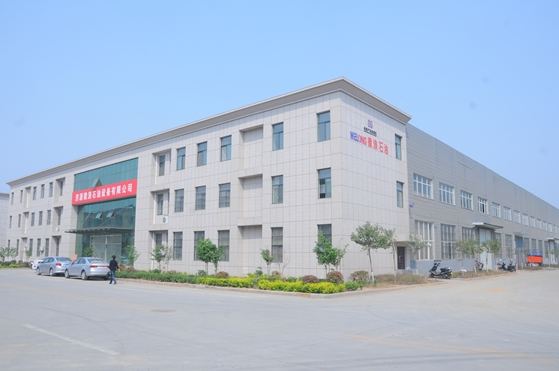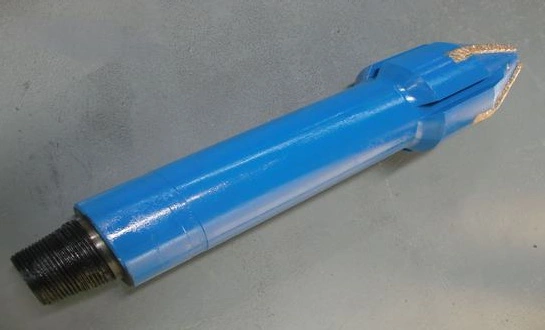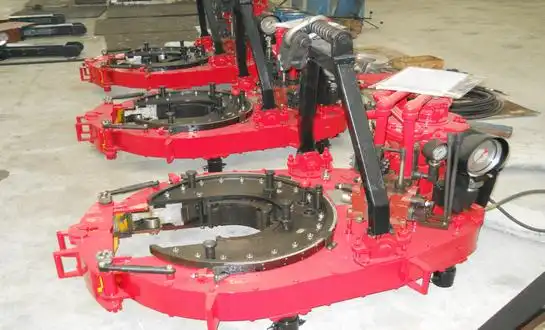What ISO Standards Govern 42CrMo4 Forging Processes?
ISO 9001: Quality Management Systems
ISO 9001 is the cornerstone of quality management for shaft forging processes. This standard ensures that manufacturers implement robust quality control systems throughout the production cycle. For 42CrMo4 forgings, this means maintaining consistent material properties, adhering to specified dimensions, and documenting all processes meticulously. The standard requires continuous improvement in forging techniques and quality assurance measures, ultimately leading to superior product quality and customer satisfaction.
ISO 683-1: Heat-treatable steels, alloy steels and free-cutting steels
This standard specifically addresses the requirements for heat-treatable steels, including 42CrMo4. It outlines the chemical composition, mechanical properties, and heat treatment parameters for this alloy. Compliance with ISO 683-1 ensures that the 42CrMo4 material used in shaft forging meets the required strength, toughness, and wear resistance specifications. This standard is crucial for maintaining consistency in material properties across different batches of forgings.
ISO 6506: Brinell hardness test
The Brinell hardness test, as specified in ISO 6506, is an essential quality control measure for 42CrMo4 shaft forgings. This standard defines the method for determining the hardness of the forged material, which is a critical factor in its performance and durability. Adherence to this standard ensures that the forgings meet the required hardness specifications, which directly correlates to their strength and wear resistance in various applications.
Can 42CrMo4 Forging Pass ISO 9001 Quality Audits?
Process Documentation and Control
For 42CrMo4 shaft forgings to pass ISO 9001 quality audits, it is essential that manufacturers establish a thorough documentation and control system for the entire forging process. This begins with a careful selection of raw materials, ensuring that they meet the required chemical and mechanical properties for optimal performance. Each step in the forging process, including heat treatment parameters, forging temperatures, and cooling rates, must be accurately recorded. Such detailed records help ensure consistency and traceability throughout production. Implementing a robust traceability system is crucial, allowing each 42CrMo4 shaft forging to be traced back to its original material batch. This not only ensures accountability but also facilitates prompt identification and resolution of any issues that may arise during production, thus maintaining product quality and reliability.
Continuous Improvement Initiatives
To maintain ISO 9001 certification, manufacturers must commit to continuous improvement in their 42CrMo4 shaft forging processes. This involves regularly reviewing and analyzing production data to identify opportunities for refinement and improvement. Through tools like statistical process control (SPC), manufacturers can monitor key performance indicators, such as product dimensions, hardness, and tensile strength, ensuring they stay within the desired specifications. In case of deviations from the established standards, corrective actions are taken promptly to minimize defects. Regularly optimizing processes not only helps in achieving ISO 9001 compliance but also ensures the consistent delivery of high-quality 42CrMo4 shaft forgings, making them highly reliable for use in demanding applications.

Employee Training and Competence
One of the cornerstones of ISO 9001 compliance is ensuring that the personnel involved in the forging process are skilled and knowledgeable. This requires investing in comprehensive training programs, specifically tailored to the needs of 42CrMo4 shaft forging. Employees must be well-versed in the technical aspects of the forging process, including material selection, heat treatment, and quality control procedures. Regular assessments and professional development opportunities ensure that the workforce remains up-to-date with the latest industry standards and practices. Highly competent employees are essential for producing consistently high-quality forgings that adhere to ISO standards, ultimately contributing to the overall success of the production process and the reliability of the final product.
Why Are Batch Testing Protocols Critical for ISO Certification?
Ensuring Consistency Across Production Runs
Batch testing protocols are essential for ensuring consistency in the production of 42CrMo4 shaft forgings. These protocols help manufacturers maintain uniformity in mechanical properties, dimensional accuracy, and material composition from one production run to the next. By testing samples from each batch, manufacturers can verify that the forgings meet the required ISO standards, ensuring they perform reliably in demanding applications. This consistency is especially important in industries such as oil and gas, where equipment failure can lead to significant safety hazards or costly downtime. The systematic approach of batch testing ensures that every batch of 42CrMo4 shaft forgings adheres to the same high standards, maintaining the quality and performance of the product.
Early Detection of Process Deviations
One of the key benefits of batch testing is the early detection of process deviations, which allows manufacturers to address potential issues before they lead to larger problems. For example, if a batch test identifies a slight variation in the hardness or other mechanical properties of the 42CrMo4 shaft forgings, manufacturers can take corrective action immediately. This might involve adjusting the heat treatment process or modifying other aspects of the production to bring the material properties back within specification. Proactively identifying and addressing deviations ensures that the forged components meet the required standards consistently, helping to preserve both the quality of the product and the manufacturer’s ISO certification status.
Traceability and Accountability
Batch testing plays a crucial role in enhancing traceability and accountability, which are integral to maintaining ISO certification for 42CrMo4 shaft forgings. Each batch undergoes a series of tests, and the results are meticulously recorded and linked to the corresponding production batch. This process allows for clear documentation of the forging’s quality history, making it easier to identify any issues that may arise later in the product's lifecycle. Should a problem occur with a specific batch of forgings, this traceability enables manufacturers to trace the issue back to its source and take corrective action promptly. Additionally, thorough record-keeping and traceability reinforce accountability, ensuring that manufacturers remain committed to continuous improvement while maintaining customer trust in their certified products.
Source: CHINA WELONG-Oilfield tools Manufacturer
FAQ about Shaft forging
What are the key benefits of using 42CrMo4 for shaft forging?
42CrMo4 is prized for shaft forging due to its excellent combination of strength, toughness, and wear resistance. This alloy offers superior mechanical properties, including high tensile strength and good fatigue resistance, making it ideal for applications in demanding environments. Additionally, 42CrMo4 responds well to heat treatment, allowing for precise control of its final properties to suit specific application requirements.
How does the forging process enhance the properties of 42CrMo4 shafts?
The forging process significantly enhances the properties of 42CrMo4 shafts by improving their grain structure and eliminating internal defects. The high pressure and temperature applied during forging result in a more uniform and refined grain structure, which translates to improved strength and toughness. This process also helps to close any voids or inclusions in the material, further enhancing its mechanical properties and overall reliability.
What are the common applications for 42CrMo4 forged shafts?
42CrMo4 forged shafts find wide application in industries requiring high-performance components. They are commonly used in oil and gas drilling equipment, where they must withstand extreme pressures and harsh environments. In the automotive sector, these shafts are used in transmission systems and drive shafts. They are also extensively employed in heavy machinery, railway equipment, and aerospace applications, where high strength and reliability are paramount.
In conclusion, 42CrMo4 shaft forging processes that meet ISO certification requirements are crucial for ensuring the quality, reliability, and performance of critical components in various industries. By adhering to stringent ISO standards, manufacturers can produce forgings that consistently meet the high demands of their applications. For more information on 42CrMo4 shaft forging and how it can benefit your specific needs, please contact us at oiltools15@welongpost.com. Welong is committed to providing top-quality forged components that meet and exceed international standards.





